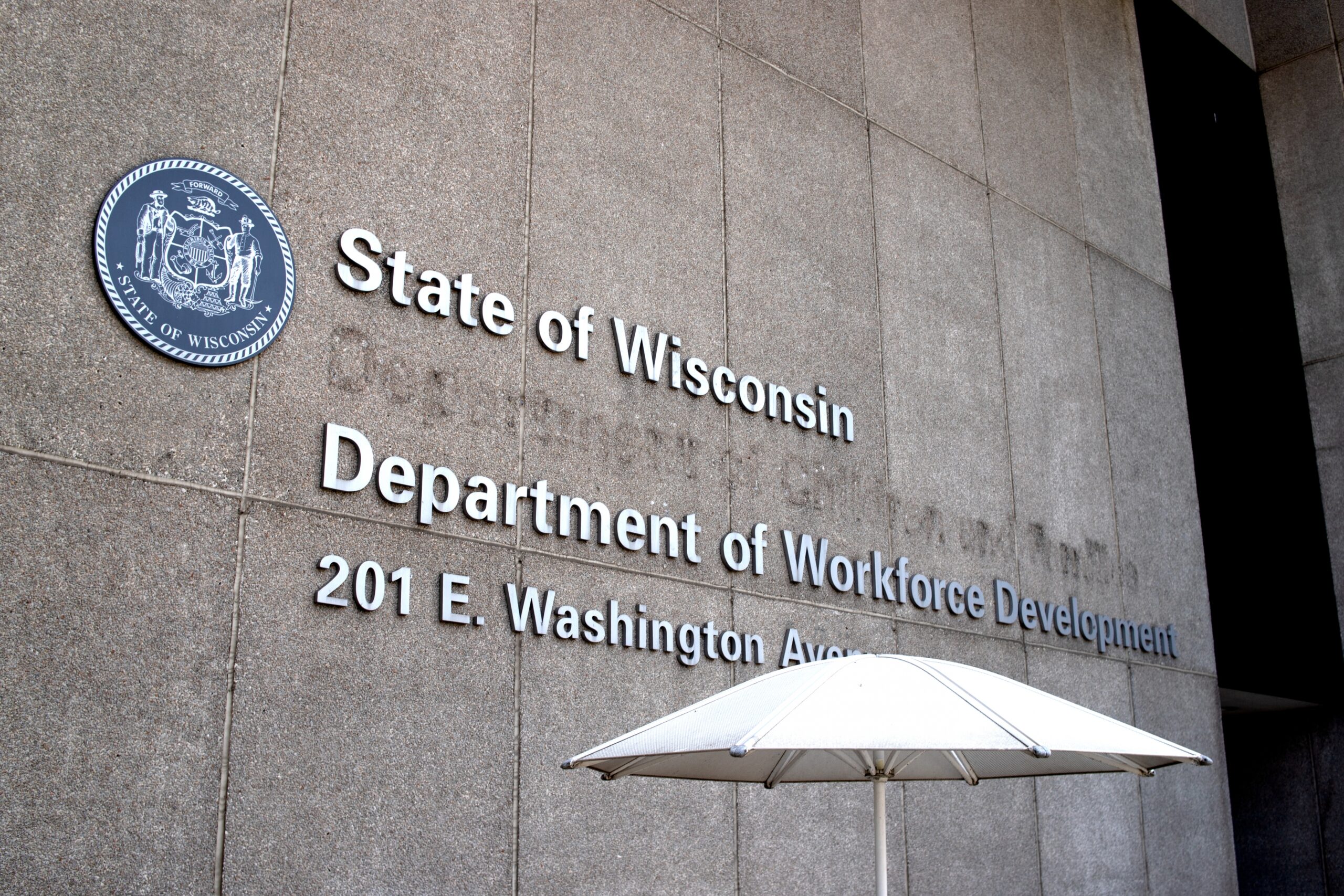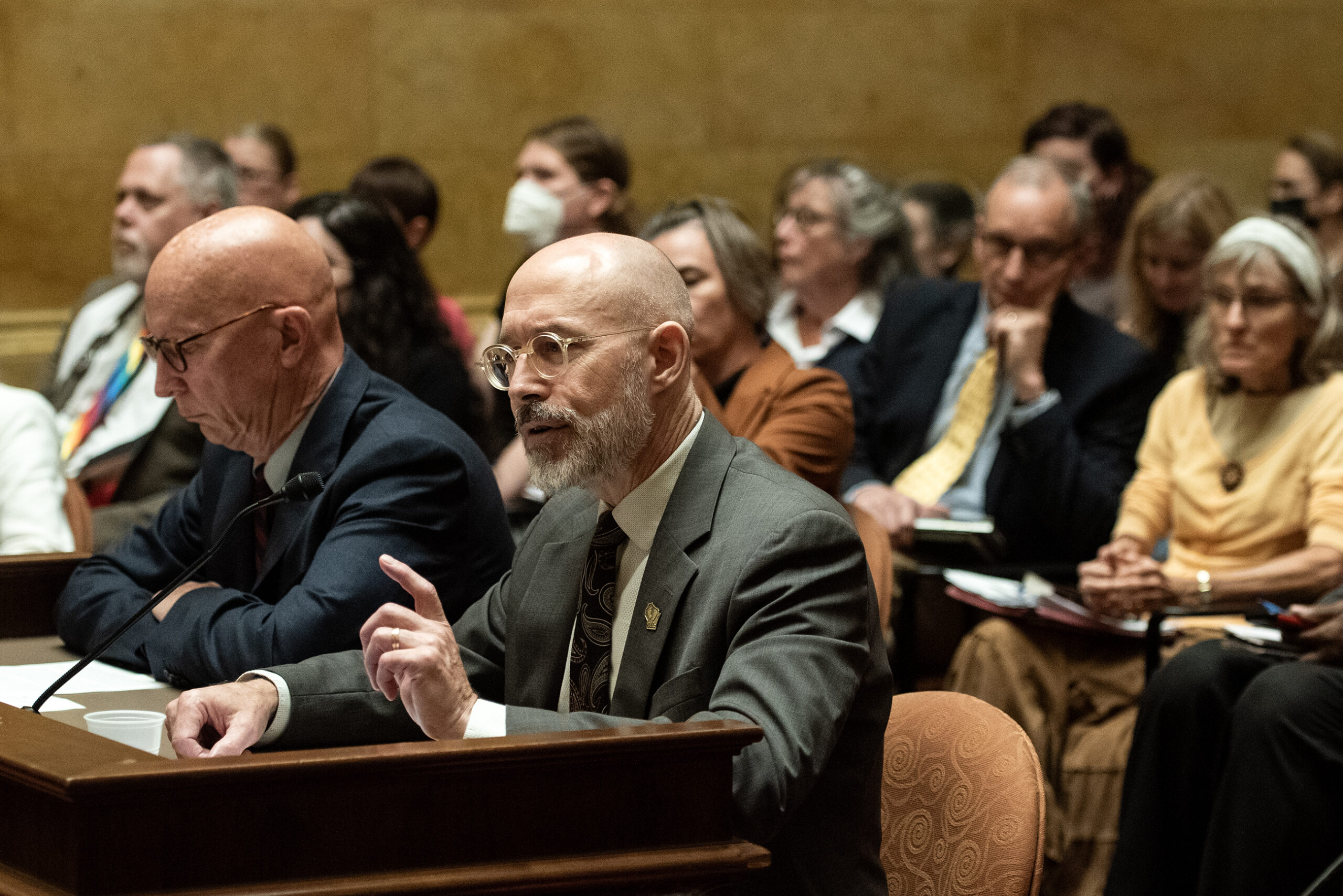Republicans in the state Assembly approved a series of changes to Wisconsin’s unemployment insurance program Tuesday, including renaming it “reemployment assistance” and adding requirements for eligibility.
GOP lawmakers also passed another bill that would prevent local communities from using public dollars to implement any kind of guaranteed income program.
Assembly Speaker Robin Vos, R-Rochester, said Tuesday’s proposals were aimed at addressing Wisconsin’s worker shortage.
News with a little more humanity
WPR’s “Wisconsin Today” newsletter keeps you connected to the state you love without feeling overwhelmed. No paywall. No agenda. No corporate filter.
“Every single career needs more workers,” Vos said. “That’s why the easiest way for us to focus on it … is to take all the folks who are in Wisconsin, who are able-bodied, who are either living off the system wrongly, or making sure that we have folks doing their due diligence to find a job, as opposed to living off the system in general.”
A version of one of the unemployment bills and the guaranteed income bill passed last session were vetoed by Gov. Tony Evers, who argued that they create barriers to receiving help.
From ‘unemployment’ to ‘reemployment’
During debate, Democrats argued that the changes are onerous and impinge on local community control, while Republicans argued that they will make public systems more efficient and sustainable.
Rep. Tip McGuire, D-Kenosha, said financial uncertainty out of Washington has made his constituent fear for their jobs.
“If I was a person who’s concerned about losing my job in the near future, I would be wondering, ‘What is the Republican majority doing? Why are they trying to restrict access to the benefits that I’ve earned in my life when our economy is looking grim?’” he said.
The changes to unemployment insurance would require a person to make direct contact with potential employers while they collect unemployment insurance. That’s an expansion of a current requirement that a person regularly look for work while receiving payments.
The bill would also allow people to be removed from eligibility for unemployment if they don’t follow job recommendations from the state Department of Workforce Development.
“What this really is [is] an opportunity for Wisconsin to help people find a rewarding, family-supporting career in Wisconsin,” said Rep. Brent Jacobson, R-Mosinee. “The goal here, really, is we need to help people transition to new jobs that may be extremely different from the job they have.”

A second bill would tighten the definition of workplace misconduct. People fired for misconduct cannot receive unemployment benefits. Currently, knowingly stealing from an employer or being intentionally negligent on the job constitute misconduct. This new definition would include unintentional misconduct, absenteeism and violating an employer’s social media policy.
That bill would also require the Department of Workforce Development, which administers unemployment, to audit half of reported work searches and give the Legislature’s budget committee oversight of any federal money earmarked to expand unemployment payments.
A third bill would extend the statute of limitations for prosecuting people alleged to have committed unemployment fraud and require further audits of recipients. A fourth would allow employers to report people to the state if they’re receiving unemployment and turn down job interviews or offers.
Democrats argued that, in combination, the legislation creates more hurdles for people to jump through.
“This body wants to add hoops and red tape complications and time when people are yearning for help, not punishment,” said Rep. Amaad Rivera-Wagner, D-Green Bay. “And instead of extending a hand, we’re asking to add more government to track down fraud that barely exists.”
A ban on guaranteed income programs
Republicans also approved a ban on municipalities establishing guaranteed income programs using public funds. The programs make direct and no-strings-attached cash payments to residents.
Republicans argued the programs disincentivize people from working.
“I can just imagine the thought process,” said Rep. Scott Allen, R-Waukesha. “Forget innovation, forget hustle. Let’s all sit around waiting for our monthly stipend.”

In response, Democrats argued that municipalities have the right to spend their money how they wish and that covering people’s basic needs allows them to contribute more to society.
Rep. Francesca Hong, D-Madison, called the GOP bill “unsound and misguided,” and called guaranteed income “one of the most promising tools we have to address income insecurity.”
“It gives struggling families something too many of the wealthy and privileged few take for granted,” Hong said. “Time to take care of your kids, time to recover from an illness, time to pursue a better future.”
The proposals head next to the Wisconsin Senate.
Wisconsin Public Radio, © Copyright 2026, Board of Regents of the University of Wisconsin System and Wisconsin Educational Communications Board.







